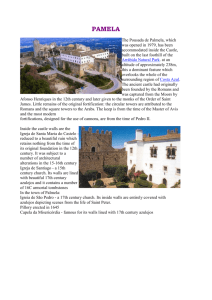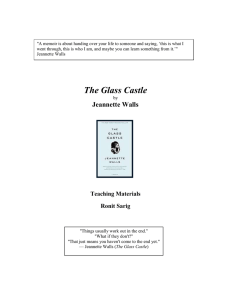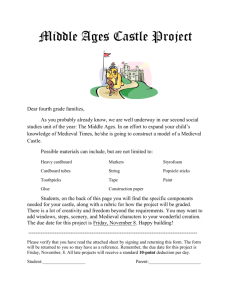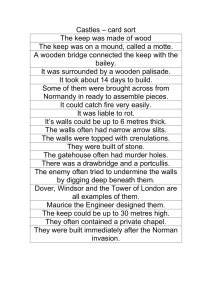First name Last name English 101 March 11, 2015
advertisement
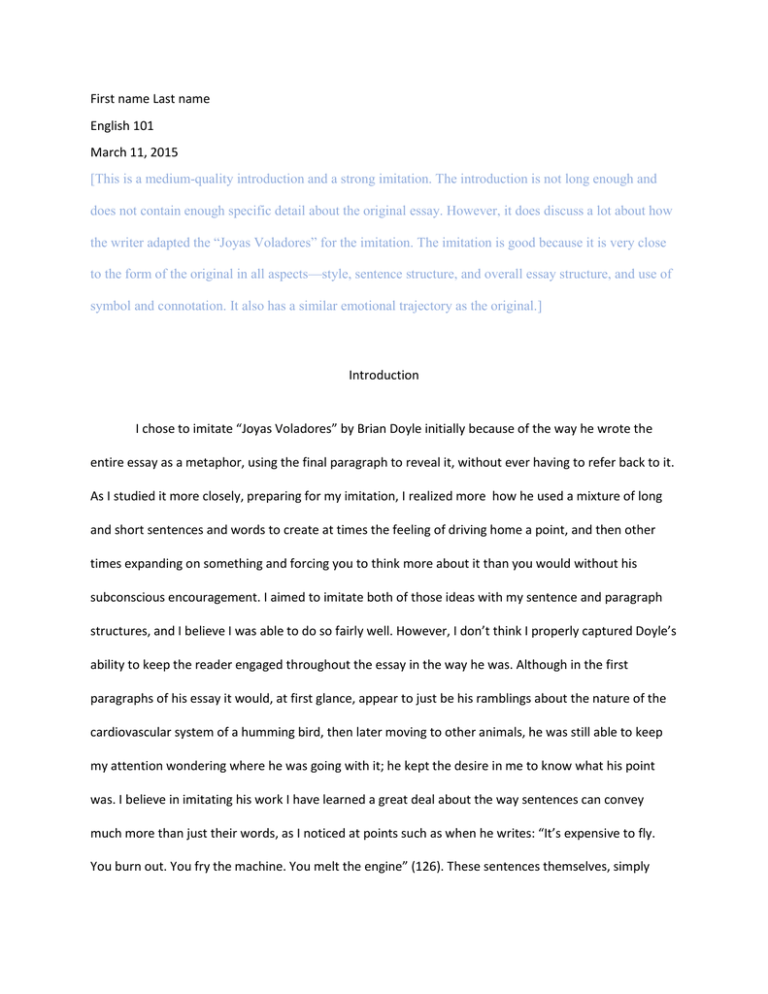
First name Last name English 101 March 11, 2015 [This is a medium-quality introduction and a strong imitation. The introduction is not long enough and does not contain enough specific detail about the original essay. However, it does discuss a lot about how the writer adapted the “Joyas Voladores” for the imitation. The imitation is good because it is very close to the form of the original in all aspects—style, sentence structure, and overall essay structure, and use of symbol and connotation. It also has a similar emotional trajectory as the original.] Introduction I chose to imitate “Joyas Voladores” by Brian Doyle initially because of the way he wrote the entire essay as a metaphor, using the final paragraph to reveal it, without ever having to refer back to it. As I studied it more closely, preparing for my imitation, I realized more how he used a mixture of long and short sentences and words to create at times the feeling of driving home a point, and then other times expanding on something and forcing you to think more about it than you would without his subconscious encouragement. I aimed to imitate both of those ideas with my sentence and paragraph structures, and I believe I was able to do so fairly well. However, I don’t think I properly captured Doyle’s ability to keep the reader engaged throughout the essay in the way he was. Although in the first paragraphs of his essay it would, at first glance, appear to just be his ramblings about the nature of the cardiovascular system of a humming bird, then later moving to other animals, he was still able to keep my attention wondering where he was going with it; he kept the desire in me to know what his point was. I believe in imitating his work I have learned a great deal about the way sentences can convey much more than just their words, as I noticed at points such as when he writes: “It’s expensive to fly. You burn out. You fry the machine. You melt the engine” (126). These sentences themselves, simply based on the way he uses his word gives the feeling of sudden stops, of dying out. The way the words sound, the effect they have to emphasize an emotion simply through their emotion response, their pronunciation, even their spelling; how taking these principles that were applied to sentences individually can then be applied to entire paragraphs, and then to the entire work of writing as a whole. This is something I will continue to develop and expand upon in my own writing, and with practice I believe will give my writing a much larger impact in both my ability to draw out a readers’ emotions, and to keep them wanting to follow, despite what the topic is. Brick and Mortar Consider a castle for a long moment. Built high and strong with the best brick and wood available. Built to keep people out, and to protect those inside. If you are not on the guest list, you may never see the inside. You will never see a castle attacking; how could it? It is built to be heavy and sturdy and tall and generally uninviting; it is certainly not designed to go out and find anyone new. Although it may be beautiful to look at, and may be, at times, subtle in its ways, its purpose is never masked. Designed to not only break up any attacker, but also to hold out for the long haul in a siege. Enough food and water stored inside to keep its citizens and defenders alive for years. It will withstand swords and spears and guns and the biggest and heaviest boulders and bombs you could throw at it. It is designed to stand tall and strong, unyielding to those on the outside, and safe and comfortable to those on the inside. In the event someone does get out of it over a wall, there are redundancies in place to ensure those defenders are not quite down and out. There are moats and drawbridges, keeps and towers, and even more walls. People have built walls to keep entire nations away. The United States has built a wall to keep out immigrants from Central America, and an embargo to keep out anything Cuban or North Korean. The ancient Romans and Chinese built world-famous walls to keep out invaders. These walls all had a purpose, and surely no one can blame them for desiring the protection those walls offered. But it is expensive to maintain a castle. You shut out people. You lose ideas. You lose culture. You lose trade. These are the very things that are the life blood that those castles rely on so heavily to survive, and the reason they were built in the first place. You end up making others build their own castles. When you can’t bring a wall with you, you bring a shield. Always at the ready to deflect that wounding blow. One more thing to put between you and those that you fear will do you harm. Maybe you bring others, and with them their shields; you build your own wall, everyone from your castle working together to ensure anyone that wasn’t invited never sets foot, never speaks an ill word, never points an accusing finger among your ranks. The average human has a life expectancy of 70 years. How many of those years will be spent shut away from the world, building your own walls to shun those that are different and so scare us? You lose so much of the world within your walls. So much lost in a day, an hour, a moment. The unfathomable amount of joy, of wonder, of the mesmerizing beauty that you can find in the world that you will never realize, because that small voice in the back of your mind, that little inkling of “what if” that causes you to build your walls stronger, to raise the drawbridge, to carry your shield with you everywhere you go, to spend every minute waiting for a blow that may never come. You can add more bricks to your walls, make them as high and tall and hard and cold and ugly and as utterly impenetrable as you possibly can, but the more you build, the stronger and tighter you make it, the harder it will be to venture outside, to visit that world you have worked so hard to keep out. You spend so long keeping invading armies out that you don’t realize you’ve locked yourself in the tower. Locked yourself away from the beauty of a sunset over the ocean of southern California, the majesty of the Scandinavian fjords, that best friend from just down the street that you waited a lifetime to meet, the one that you would tell your deepest fears and secrets to and know them to be safe in a different kind of castle, and to be relied on to do the same, that lover from across the world that you would give your heart and soul to, with only a chance meeting, everything in both your lives lined up perfectly for your one and only opportunity to meet. They may never come to knock on that castle you have built. If they do, will you answer the door, lower the drawbridge for them? Can you from your perch in your tower? Alone, cold, and suffocating in darkness. But safe.
